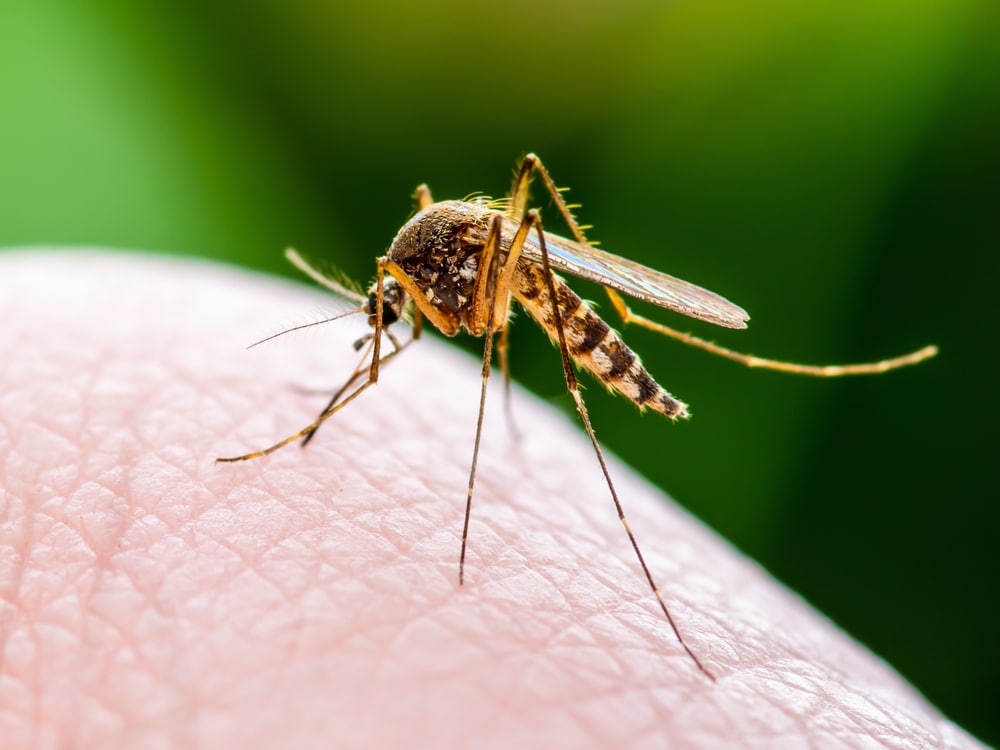Actually, holidays are supposed to be the most beautiful time of the year. Many people then seek closeness to nature. However, insects can spoil your well-deserved rest.
Where is the danger of insect bites or bites?
Practically anywhere, even on your doorstep or in your own garden. Insect protection on vacation is not only necessary if you are visiting the Everglades in Florida or have booked a safari in Kenya . Even on a boat trip across the Mecklenburg Lake District or a camping holiday in southern Sweden, mosquitoes, midges, gnats and other bloodsuckers can cause you a lot of trouble. Such insects can develop anywhere where there is stagnant water or even swamps and it is warm enough. Since mosquitoes and other insects only need a short time to develop, they are also found in the far north.
What to do in case of insect bites or bites?

Even with the best precautions, it is unavoidable that you will occasionally be stung or bitten by insects. In general, this is harmless, but can also be dangerous under certain circumstances. Insect bites should usually be refrigerated to relieve the itching. Then apply ointment, which relieves the itching and does not scratch the bites, otherwise the area can become inflamed. Onion juice also helps to relieve itching on the way. A hot teaspoon placed on a mosquito bite also relieves the itching. However, it is important that the treatment is carried out as soon as possible after the sting, otherwise it will have no effect.
Dangerous stings or bites
These include bee stings. The sting has barbs and gets stuck in the skin when the bee flies away. If it is not removed, the venom blister attached to it continues to pump poison into the wound. Wasps and hornets, on the other hand, have smooth spines without barbs that do not get stuck. Nevertheless, there can be a danger to life in the case of bites by hymenoptera if the affected person is allergic to the poison. The same applies if the sting occurs in the mouth because the wasp was accidentally swallowed while eating. Then go to the doctor immediately, because the trachea can swell due to the poison, so that there is an acute risk of suffocation.
Bites by ticks are also dangerous. The insects don’t let go until they’re soaked. You should not tear off the abdomen under any circumstances, but have the tick removed by a doctor. If you like hiking, it is recommended to be vaccinated against Lyme disease (tick fever).
How do you protect yourself against insect bites?
Of course, it is better to avoid them than treating stings or bites. There are simple but effective measures for this. For example, you should wear light-colored clothing with long sleeves and long legs. Mosquitoes do not like bright colors. They prefer to bite in areas with dense blood supply, such as the wrists, ankles and neck. Loose, loose clothing that covers these areas protects against bites and also cools the body.
Another protection against bites is regular showering. Mosquitoes are attracted to the smell of sweat. Sweat smells as delicious to the tormentors as a steak or a bratwurst on the grill does to humans.
Avoid the vicinity of stagnant waters at dusk. At this time of day, the insects are particularly active and hungry.
For protection in enclosed spaces, you can use smoke coils, which release an insecticide when lit. Smoke spirals are suitable for camping because they do not require electricity. However, there is a risk of fire. Platelets soaked in insecticide and inserted into devices equipped with a tiny electric heating plate are safer. Scented candles with tea tree oil or lemon oil have also proven to be effective, because mosquitoes don’t like them.
Insect protection in the tropics

If you are sensitive or travel to risk areas where malaria, yellow fever or dengue fever occur, you must supplement the protection with mosquito repellents (insect repellants). Products from the drugstore are not strong enough for this. A tropical medicine specialist will prescribe suitable preparations for you on prescription.
If the beds are equipped with mosquito nets, use them and don’t forget to close the net carefully again if you have to go out at night. In any case, take prophylactic preparations against malaria and get vaccinated against yellow fever if necessary.


